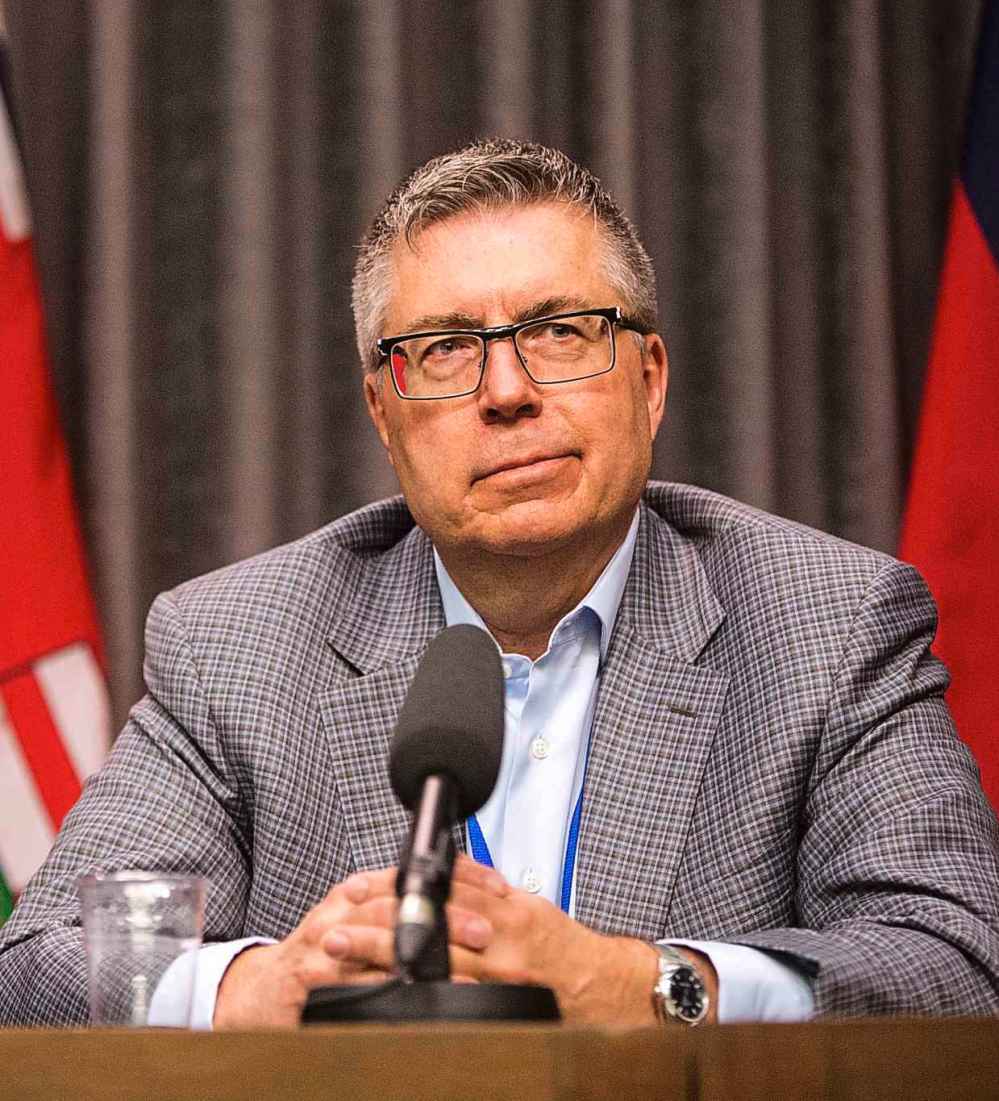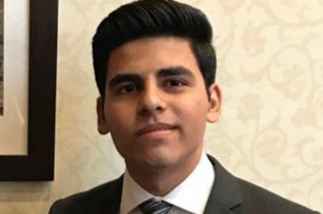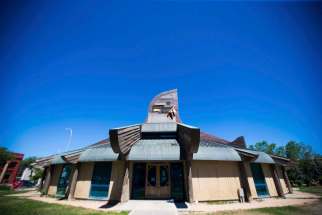Hydro’s voluntary departure program generates big numbers
Read this article for free:
or
Already have an account? Log in here »
To continue reading, please subscribe:
Monthly Digital Subscription
$0 for the first 4 weeks*
- Enjoy unlimited reading on winnipegfreepress.com
- Read the E-Edition, our digital replica newspaper
- Access News Break, our award-winning app
- Play interactive puzzles
*No charge for 4 weeks then price increases to the regular rate of $19.00 plus GST every four weeks. Offer available to new and qualified returning subscribers only. Cancel any time.
Monthly Digital Subscription
$4.75/week*
- Enjoy unlimited reading on winnipegfreepress.com
- Read the E-Edition, our digital replica newspaper
- Access News Break, our award-winning app
- Play interactive puzzles
*Billed as $19 plus GST every four weeks. Cancel any time.
To continue reading, please subscribe:
Add Free Press access to your Brandon Sun subscription for only an additional
$1 for the first 4 weeks*
*Your next subscription payment will increase by $1.00 and you will be charged $16.99 plus GST for four weeks. After four weeks, your payment will increase to $23.99 plus GST every four weeks.
Read unlimited articles for free today:
or
Already have an account? Log in here »
Hey there, time traveller!
This article was published 09/07/2018 (2715 days ago), so information in it may no longer be current.
Buyouts due to corporate downsizing at Manitoba Hydro led to huge payouts for some of the Crown corporation’s managers last year, with one former vice-president receiving more than $800,000 in total compensation.
In a new report, Hydro disclosed it paid more than $200,000 in compensation (including salary, overtime, benefits, termination pay and other payments) to 123 employees in 2017, and $300,000 or more to 11 staffers or former staffers.
Manitoba Hydro’s top earners*
Lloyd Kuczek, vice-president, customer care and energy conservation – $805,015
Lloyd Kuczek, vice-president, customer care and energy conservation – $805,015
Brent G. Reed, vice-president customer service and distribution – $568,322
Kelvin Shepherd, president and chief executive officer – $466,629
Free Larter, Selkirk Generating Station department manager — $437,218
Darren Rainkie, vice-president finance and regulatory and chief financial officer – $395,499
Thomas Hummerston, staff officer – $329,238
John McNichol, HVDC division manager — $320,307
Ronald McKinnon, risk prevention leader – $319,661
Daniel McCann, Keewatinohk Trades/electrical operations – $306,534
David McDonald, operations and maintenance section head – $304,023
– source: Manitoba Hydro compensation report 2017; * – Amounts listed include basic earnings, overtime, allowances and premiums, taxable benefits, vacation payouts, other earnings and benefits, northern benefits and termination and retirement payments.
In 2016, 67 Hydro employees received total compensation of $200,000 or more, while only three got more than $300,000.
Last year, Lloyd Kuczek, Hydro’s former vice-president of customer care and energy conservation, received total remuneration of $805,015. The previous year, he earned $218,716, according to the corporation’s compensation disclosure report.
Kuczek’s total compensation dwarfed that of Hydro president and chief executive officer Kelvin Shepherd, who earned $466,629 in salary and benefits last year.

Shepherd was the third-highest paid Hydro executive in 2017. Another former vice-president, Brent Reed (customer service and distribution), received compensation totalling $568,322. The year before, Reed received $234,999.
Todd MacKay, Prairie director of the Canadian Taxpayers Federation, said some of the payouts are "truly shocking."
“How do you get paid four times as much to not come to work?” he said, referring to Kuczek’s compensation jump. “I can’t think of an explanation here that makes sense.”

MacKay said a generous buyout would be six months to one year’s pay. If Hydro made the payment out of generosity, it would be "overwhelmingly inappropriate," given its current dire financial situation, he said.
If the Crown corporation were compelled contractually to pay out such a large sum in cutting ties with an executive, then it should do everything it can to avoid such deals in the future, he said.
“This defies explanation. I can’t even think of anything I’ve seen like this. This requires a fulsome explanation,” MacKay said.
Hydro spokesman Bruce Owen said the 2017 compensation report reflects buyouts made under the corporation’s voluntary departure program. A total of 820 employees participated in the program, which ended in May of last year.
In an email, Owen said Hydro would not discuss compensation to specific individuals.
"The payments you see include a number of different figures: salary, northern allowance, overtime, banked vacation and other accrued benefits earned over a long career at Manitoba Hydro," he said. "Figures quoted may also include payments made under the VDP — and, where applicable, severance."
Owen said the voluntary departure program is expected to save the corporation $90 million annually in salary and benefits.
!function(e,t,n,s){var i=”InfogramEmbeds”,o=e.getElementsByTagName(t)[0],d=/^http:/.test(e.location)?”http:”:”https:”;if(/^/{2}/.test(s)&&(s=d+s),window[i]&&window[i].initialized)window[i].process&&window[i].process();else if(!e.getElementById(n)){var a=e.createElement(t);a.async=1,a.id=n,a.src=s,o.parentNode.insertBefore(a,o)}}(document,”script”,”infogram-async”,”https://e.infogram.com/js/dist/embed-loader-min.js”);
However, MacKay said the corporation’s response was inadequate. "They provided no useful information there at all (about the size payments to executives)," he said. "This is a transparency issue."
Manitoba Hydro is mired in debt as it struggles to pay for a new dam and a major new transmission line. It had asked the Public Utilities Board for permission to boost consumer rates by 7.9 per cent this year, but was granted an increase of 3.6 per cent.
In recent years, Manitoba Hydro has boosted compensation for senior managers after a consultant’s report revealed executive pay at Hydro had fallen below the 10th percentile of comparable companies.
Several corporation executives received substantial raises in 2017, with some assuming greater responsibilities on a smaller executive team.
Shane Mailey, vice-president of transmission, saw his pay and benefits rise to $301,525 from $259,358 the previous year. Lorne Midford, vice-president of generation and wholesale, received $293,823 in 2017, up from $260,061 the previous year.
Meanwhile, Shepherd’s pay was virtually identical in 2017 to what it was in 2016.
larry.kusch@freepress.mb.ca

Our newsroom depends on a growing audience of readers to power our journalism. If you are not a paid reader, please consider becoming a subscriber.
Our newsroom depends on its audience of readers to power our journalism. Thank you for your support.
History
Updated on Monday, July 9, 2018 7:10 PM CDT: updates








